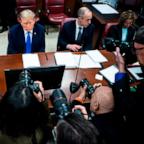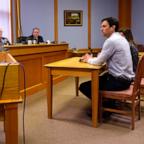On both sides of the Atlantic, Robert Hyde draws scrutiny
FBI agents turned up at Hyde’s home and office in Connecticut on Thursday.
A peripheral figure in the ongoing impeachment drama -- Robert Hyde -- has rapidly become the focus of law enforcement on both sides of the Atlantic Ocean.
Interest in Hyde first surfaced two days ago, when Congress released records strongly suggesting the U.S. Marine veteran and current GOP candidate for Congress had taken part in surveilling a U.S. ambassador in Ukraine. Hyde had boasted of efforts to place former U.S. Ambassador Marie Yovanovitch "under physical surveillance," in encrypted messages he exchanged with Lev Parnas, a Soviet-born associate of the president's personal attorney, Rudy Giuliani.
On Thursday, with his text messages in full public view, FBI agents turned up at Hyde's home and office in Connecticut, where he is running for office. And in Kyiv, Ukrainian officials announced a criminal probe to see if local laws were violated. Authorities in both countries appear intent on determining whether Hyde presented a genuine threat to Yovanovitch, or whether he was, in his own words, "just playing."
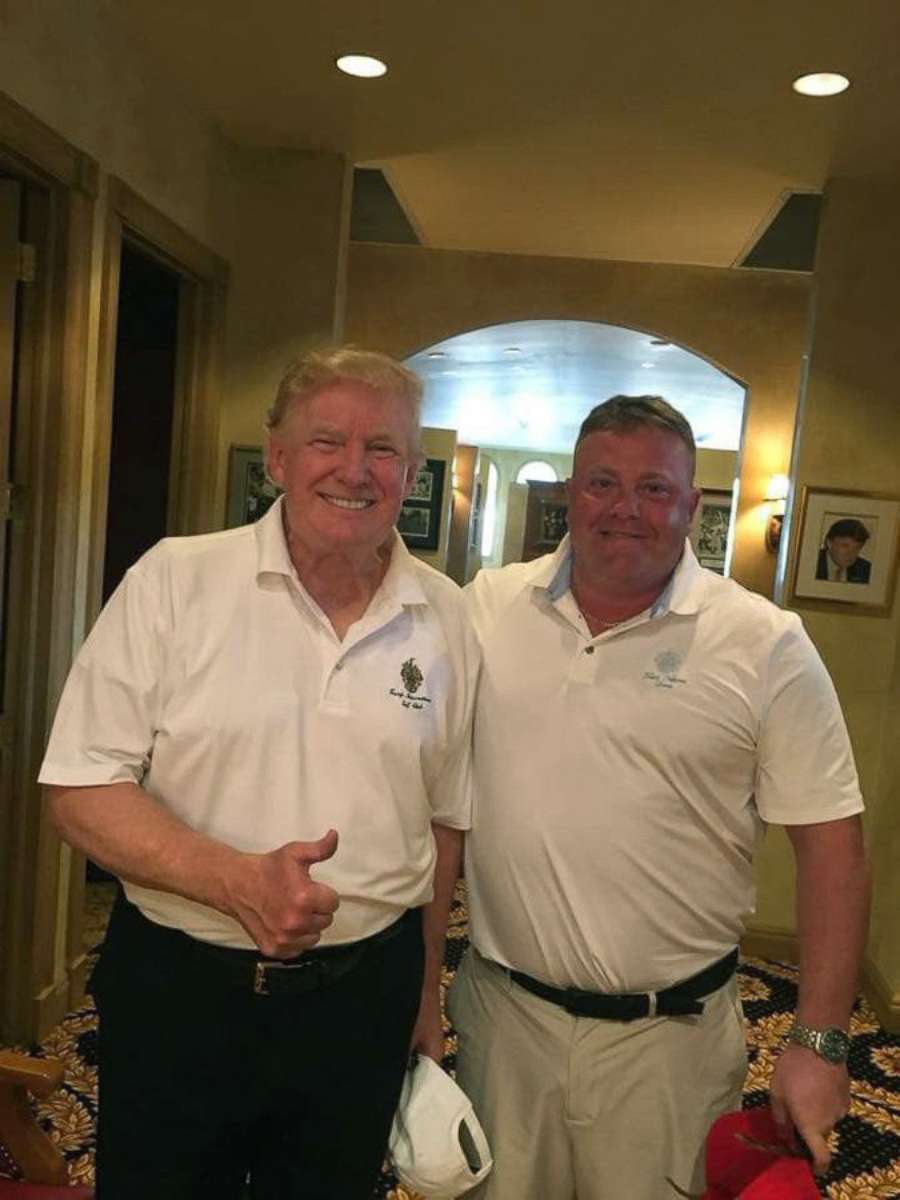
"Absolutely not, are you kidding me?" Hyde said during a phone interview on Wednesday with Sinclair's "America This Week with Eric Bolling." "I'm a little nasty mother (expletive) from Connecticut, excuse my language."
Parnas, who is facing federal charges of campaign violations -- in part -- connected to the effort to oust Yovanovitch, downplayed Hyde's activity and credibility in an interview Wednesday with MSNBC's Rachel Maddow. Parnas described Hyde as erratic and a heavy drinker.
On Thursday, Hyde did not respond to ABC News' request for comment. Reached by ABC News late Tuesday, Hyde declined to comment on the messages -- but said he was "absolutely not" aiming to harm the ambassador.
The FBI declined to comment.
The stepped-up scrutiny of Hyde may stem in part from the discovery that he has had past contact with Trump and several White House advisers. He appears in photographs with Trump on a golf course and, in separate photographs, posing alongside the president's son Eric Trump, former Trump campaign manager Cory Lewandowski and former Trump adviser Roger Stone.

At the same time, Hyde has had several brushes with law enforcement, including allegations of falsifying federal financial disclosures and offensive rhetoric toward women.
In May, police records from Doral, Florida, indicate officers had to remove Hyde from President Trump's property there, Trump National Doral, after Hyde claimed to "fear for his life" because "a hit man was out to get him." A police report noted that he said "he was paranoid that someone was out to get him" and "explained that his computer was being hacked by Secret Service."
During a separate incident at Trump National Doral in September 2018, Hyde was accused of sexual battery, according to an incident report obtained by ABC News. The victim later "retracted her accusation and stated she no longer wished to proceed with the case," according to the report. No charges were filed.
Federal financial disclosure records Hyde filed as part of his congressional bid have only raised more questions. Two companies he identified as employers, Lightstone Group and A10 Strategies -- where Hyde claimed to be president -- have contacted ABC News to dispute Hyde's employment record.
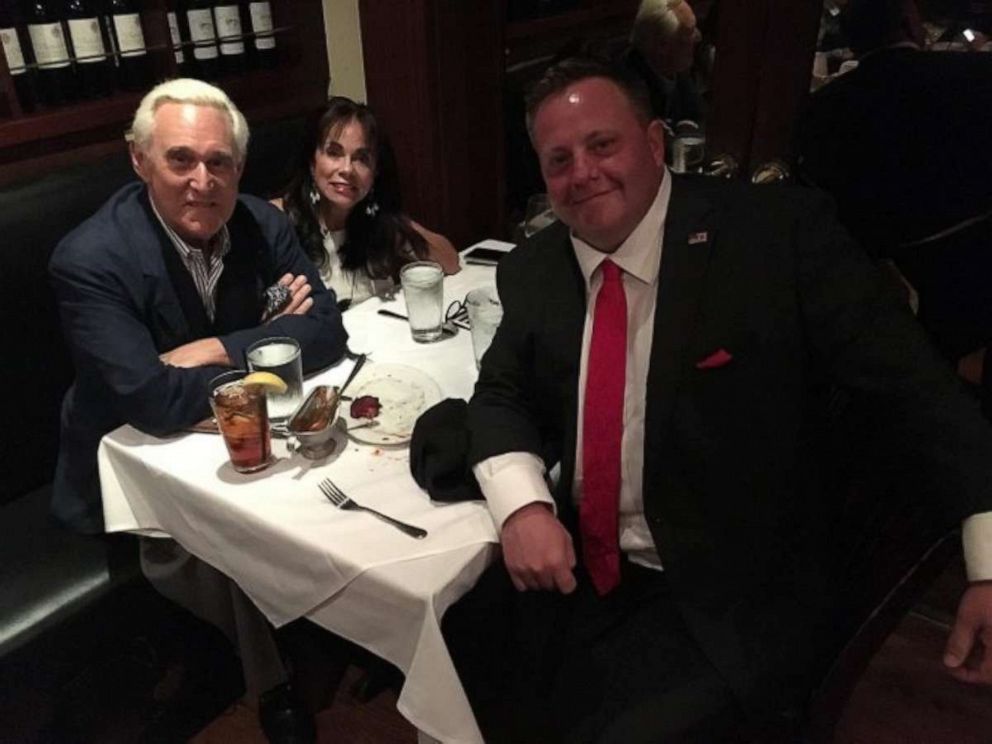
Jessica Stucco, the CEO at A10 Associates, a political lobbying firm, said Hyde "was absolutely not president of our company." Lightstone Group initially told ABC News they "no idea who he is and have never had any dealings with him whatsoever," but later clarified that while “[Hyde] has never done any public relations work for us, as he claimed ... we uncovered that he had a company that did landscaping and snow-removal work for a Connecticut property that we no longer own."
In December, several Republican leaders in Connecticut called on Hyde to end his campaign after he posted a derogatory Twitter message describing Sen. Kamala Harris' decision to drop out of the Democratic presidential primary in sexual terms. In WhatsApp messages with Parnas, Hyde referred to Yovanovitch as "that bitch."
Law enforcement experts said Hyde's background might raise red flags for the U.S. Secret Service -- who typically run checks on people who have close access to the president.
"(Secret Service) would look for anyone showing unusual interest in a protectee," said Nick Steen, a retired U.S. Secret Service special agent in charge. "That could be statements or actions like posting something unusual or threatening online to repeatedly showing up uninvited at locations where the protectee was."
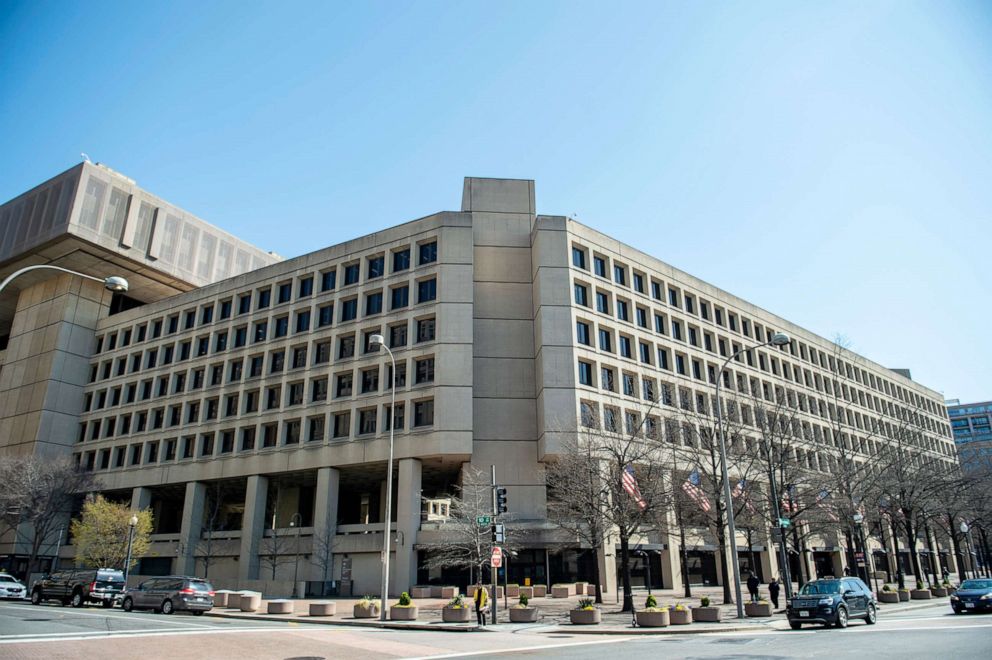
Brad Garrett, a former FBI special agent and ABC News law enforcement contributor, concluded that Hyde's background points less to a dangerous person and more likely reflects someone looking to raise their profile.
"Hyde is willing to invest the energy (to be near the president) because he's trying to build this fake image. He's going to invest the energy to try to ingratiate himself for, if nothing else, a photograph with the president," Garrett said.
Either way, securing this particular president -- who frequently visits his private resorts and golf clubs -- poses significant challenges for law enforcement.
"It's always a very tricky situation," said Don Mihalek, a retired senior Secret Service agent and ABC News contributor. "There's very little Secret Service could have done to prohibit (Hyde) from accessing, say, a place like Mar-a-Lago."
Editor’s note: This story has been updated to reflect clarification from Lightstone Group about the nature of Hyde’s work for the company.
